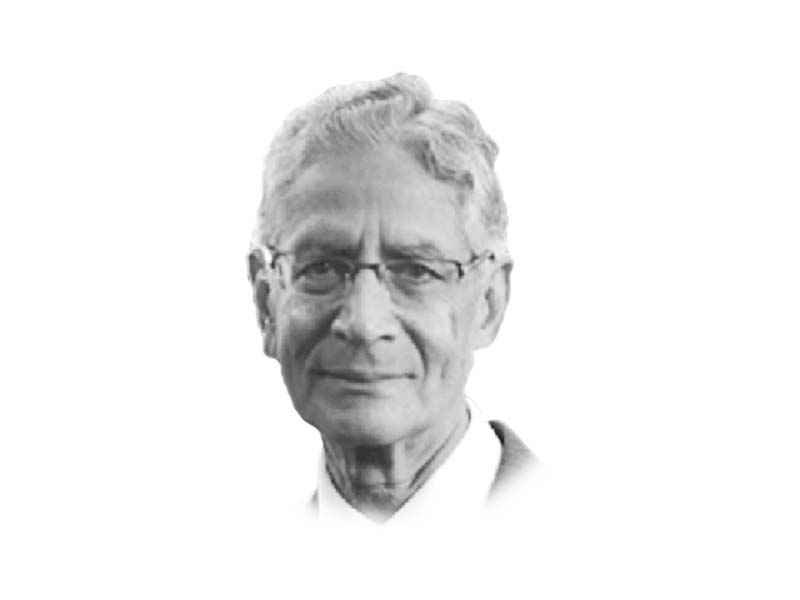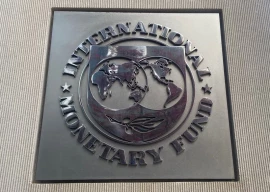
This is not an essay on the American society or an all-embracing review of the US foreign policy that would be far beyond the scope of this article. It is just a snapshot of the process of the making of US foreign policy and the formative influences that impact its substance.
It is the foreign policy of a highly open society with a powerful media and advanced civil society that demands answers. The government is thus having to explain its policies all the time, often informing but not revealing. It is also the foreign policy of a highly complex and in many ways unique democracy under constant stress of domestic politics. That means the government saying different things to different audiences, sending mixed fixed signals among the American public as well as people abroad.
Adding to the welter of confusion is the media’s approach to foreign affairs specially that of the 24/7 electronic media. The way it plays on foreign policy issues has created its own distortions. The social media which has made everybody an instant expert on foreign policy has made things worse — opinion is moving faster than knowledge. The net result is that foreign affairs have become action drama and the traditionally uninformed American public has become grossly misinformed and behaves as if it has become a protagonist in a conflict. And wants its voice to be heard which a politician cannot ignore because of its impact on his electoral prospects.
There are also multiple systemic issues in the US foreign policy. The administration has to satisfy, specially on issues of critical national importance or of high public interest or both, different centres of power and bureaucratic institutions, like Congress, the Pentagon, and the CIA and various lobbies and special interests. The challenge is how to synthesize differing points of view.
In making a policy the president thus has to resolve the constant tussle between the electoral compulsions on the one hand and strategic imperatives on the other, and between America’s own interests that are global and those of its allies that are local and regional. Of particular importance are the tensions between public interest and national interest. The greater the public interest and its impact on politics harder it is to make policy especially if there is no consensus. Frankly, the consensus has broken down on many issues because of polarised politics and media’s influence. Syria is a case in point where it has been difficult to align public opinion, politics and policy. So you either end up with no action as by Obama or adhoc action by Trump.
These are indeed the challenges of making public policy in in an advanced democracy but more so in the complex American system. Issues do not live only at the level of foreign policy. There is an issue and there is a politics of the issue. Ask yourself if it is a policy statement or a political statement. Otherwise you will make the mistake of picking one fragment of a remark by an official or a politician, and start reading a huge meaning into it. Trump’s tweets for instance are political, not policy statements.
Now the substance of the policy. The US does command an immense array of diplomatic, economic and political assets and military power. To its credit, it has played a decisive role in international affairs specially in the last century maintaining some semblance of balance of power and international order and stability. But there has been an obvious discrepancy between America’s claims of a moralist foreign policy and the practice of a policy whose substance is not markedly different from the traditional power politics of any great power.
There have been thus great success stories in US foreign policy but failures as well. America has done very well in purely economic and military challenges such as the two World Wars. It has also done well in dealing with other big powers despite the fact that they all have now risen and become competing powers. But it would be wrong to say America is in decline. It is just that other powers have come up challenging America’s primacy in the world.
Now where have been the failures? The reality is America does not do well in crises which are not entirely military and where you need to understand the internal dynamics of another society ( Afghanistan, Iraq and Libya in modern times and Vietnam in the past are examples). America generally fails here because the basic approach is mechanistic, practical and impatient. There is an over-reliance on military power and money.
Washington also has had another problem area of foreign policy. It has had a varying degree of trouble either with the government or the people in two groups. That has included authoritarian regimes mainly from resource-rich countries who have needed Washington’s help in staying in power. Or, countries who needed economic and military assistance because of insecurity and poor governance.
Essentially in these countries Washington related only with the elite and tried to buy friendships with money in advancement of its economic and strategic interests. It worked up to a point but is having problems as the elite-based system is under challenge now. Populations whose political self-consciousness has risen because of the new global forces are discovering that it has been a bad bargain. And this challenge is coming from two opposing forces — of democratisation and nationalism on the one hand and religious extremism on the other. And oddly they often converge on one point — anti-Americanism.
US relations with many of these countries are now troubled. But people there wrongly rely on conspiracy theories to explain what has happened. The plain truth is if American actions have caused them problems it is not due to any malice or some grand design to create chaos and instability. No. America has had bad partners in these countries and has pursued flawed polices in which the complex policymaking process where politics, ideology and corporate interests, especially of the military-industrial complex often trump strategy, has made no small contribution.
Published in The Express Tribune, April 18th, 2017.
Like Opinion & Editorial on Facebook, follow @ETOpEd on Twitter to receive all updates on all our daily pieces.
1729161093-0/liam-(4)1729161093-0-405x300.webp)

1731483370-0/BeFunky-collage-(49)1731483370-0-165x106.webp)

1731482626-0/BeFunky-collage-(48)1731482626-0-165x106.webp)



1729685382-0/Untitled-design-(57)1729685382-0-270x192.webp)




1731413133-0/Express-Tribune--(12)1731413133-0-270x192.webp)
1731321721-0/cover_1731305629FotoJet-(14)1731321721-0-270x192.webp)




COMMENTS (2)
Comments are moderated and generally will be posted if they are on-topic and not abusive.
For more information, please see our Comments FAQ